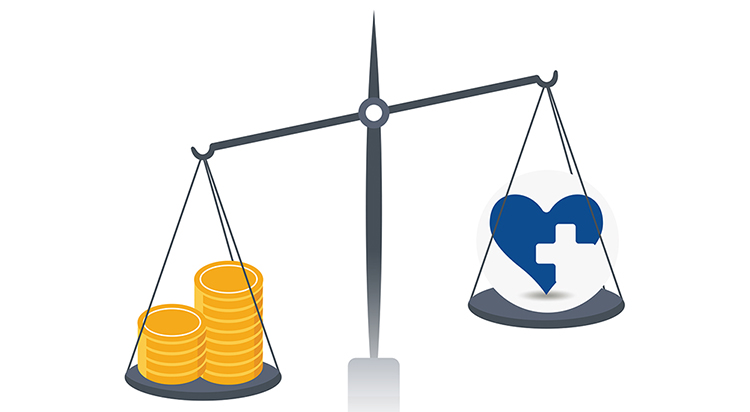ABSTRACT
Health is a valuable commodity that must be paid for and good finance systems are evident wherever good health systems are existent. The sustainable development initiative of the United Nations established in 2015 comprises goals common to all nations whether they have well-developed or less-developed health systems. Poorly developed health systems characterise health care found in many countries in Africa and financing is crucial in making commendable landmarks. In this article, literature would be reviewed for evidence-based information regarding effective financing for optimal health care systems in Africa akin to achievement of the Sustainable Development Goals (SDGs).
Keywords: SDG, health, Finance, health care systems, Africa
BACKGROUND
The 2030 SDG agenda was adopted as a build-up on the achievements of the Millennium Development Goals (MDGs) and also an expansion to cover areas like climate change, economic inequality, innovation, sustainable consumption, peace and justice amongst other areas of priority1. Member states have had to turn to take practical steps to achieving these 17 goal-agenda launched on the 25th September, 2015 with 169 indicators1,2.
Most parts of Africa especially sub-Saharan Africa had to grapple with attaining most of the MDGs especially the health related; goals four to six3. Now that everyone has moved on to aim at achieving the SDG, it is important that we examine the odds against us point out ways to achieving these goals.
The third SDG, termed ‘good health and wellbeing’, now encompasses the health related MDG 4-6 and Africa cannot afford to fail again. Ensuring good health and well-being is important for her people as it influences her success in other aspects of the SDGs. It is hinged on three pillars- access, quality and cost containment4,5. These three are fundamental and greatly rely on one another. Affordability would continue to ensure access and good funding is important to ensure continued quality of care and much more access. Therefore, financing healthcare is at the root of ensuring access and quality services and the earlier we built a firm framework for this, the better.
Health in Africa is predominantly financed by domestic resources, with about 24% of the total health expenditure (THE) being external aid6. Since the adoption of the MDG in 2001, there has being an improvement in the total input of the African government to health, however, more grounds need to be covered6. For example, the estimated price tag for achieving the target of ending AIDS by 2030 is $36 billion a year, almost twice the current funding level of $19 billion. Similarly, global investments in malaria will need to triple by 2030 to reach the SDG elimination target7. There must be a paradigm shift to further minimise dependence on donors and create an active and robust system of financial mining in order to have consistency and autonomy in funding health in Africa.
PROBLEM STATEMENT
For every US$100 that goes into state coffers in Africa, on average US$16 is allocated to health, only US$10 is in effect spent, and less than US$4 goes to the right health services6.
There is deprioritization of health despite increasing revenues. African Heads of state at the Abuja declaration back in 2001 pledged to allocate 15 per cent of their governments’ budget to the health sector. However, attainment of this target has been varied, ranging from two countries reaching it in 2004 to nine in 2009, and then fewer in later years8. There has also been lesser commitment to health budgetary allocation despite an average 18% increase in GDP across African countries in the last decade6.
Out-of-pocket (OOP) payments for health have remained high in the African region. In 2013, only 10 of 47 countries had an OOP expenditure of less than 20 per cent of THE, while 19 had OOP payments of more than 40 per cent of THE, therefore exposing households to impoverishment8.
There is funding inconsistency which undermines capacity for effective planning and implementation irrespective of whether the source is from the government or donors. Budgetary allocation across the continent is underspent. Even when the government gives more to health, the execution is poor. There is as much as US$10-100 million as unrealized expenditure. This suggests weak links between health and public financial management6.
There is also misallocation of resources. Primary care receives less than 40% of public health funding in most African countries. Access to this first-contact, essential care is mainly funded through OOP expenditure. Evidence also shows that poor people tend to be affected more; through catastrophic expenditure, they feel the burden six (6) times more than the rich6.
Health coverage in Africa has indeed improved massively over the past decade but utilization by the poor remains constrained by financial barriers.
STRATEGIES FOR FINANCING HEALTH SDG
- Sharing the cost amongst the population through taxations and/insurance: Rwanda’s government covers 40% of THE and as a result had only 1% of catastrophic expenditure following the introduction of a quasi-compulsory, nationally pooled insurance system. In Kyrgyzstan, pooling of general revenues with insurance payroll taxes has increased financial protection and contributed to improved access to health care for the most vulnerable populations7.
- The government needs to give health a top priority in their budget allocations: If African Union countries increased government expenditure on health to 15 percent as promised in the Abuja Declaration in 2001, they could together raise an extra 29 billion USD per year for health9.
- Cost Effectiveness: Increased funding alone will be more effective in achieving the SDGs when a strong emphasis is made on cost-effectiveness and priority allocations. Cost-effectiveness is key to achieving SDG3 and Universal Health Coverage. About 20–40 percent of resources spent on health are wasted; these resources could have been redirected towards achieving Universal Health Coverage6. The fallouts can occur due to use of more costly medicines when cheaper and equally effective ones are available, siting health facilities where they are less needed, focus on high end care rather than primary care, etc. Opportunities to achieve more value for the available funds exist in all African countries, if only we put the funds to right use.
- A multi-sectoral approach: Health can benefit enormously from investments in other sectors. Studies have shown that as much as 50 percent of the reduction in under-five child mortality across 142 countries of the world is due to factors outside the health sector, such as education, access to clean water and sanitation, and women’s participation in politics7. For example, through investments across sectors, the Chinese government lifted 439 million people out of poverty between 1990 and 2015 and simultaneously reduced child and maternal mortality by over 80% and 72%, respectively. Over the same period, child and maternal mortality in Ethiopia declined by 71% and 72%, respectively similarly3.
- A strong private sector: This is needed to create jobs and mobilise a substantial share of the required financing9. Two-thirds of the health finance needs can be mobilised through domestic sources and the private sector7.
- Efficient public investments in public goods, such as basic education, primary healthcare, rural roads and other forms of infrastructure.
- International support in the form of consistent and coherent international policy frameworks (e.g. for trade, financial regulation) and, where needed, international co-financing. Countries must inter alia, determine the volume of public and private investments required to achieve the SDGs – assuming, of course, that sound policies are also in place.
CONCLUSION
To achieve the ambitious health SDG, there has to be commitment to development of other critical sectors. It may not be primarily a financing challenge, governments need to set the right policy frameworks to mobilise private investments, domestic as well as international public resources for long-term investments in sustainable development. Regarding finance, if the world truly wants to live up to its promise that no country or person be left behind, all countries must work together and support each other. Although a push can be made to achieve the health SDG with less dependence on donors, it could be a steep hill climb for poor countries. For Africa to achieve the health SDG, in addition to good fiscal initiatives and domestic resource mobilisation, multi-sectoral development, support from the private sector, NGOs and other countries is needful.
REFERENCES
- Sustainable Development Goals. United Nations Development Programme. Available from: undp.org/content/sustainable-development-goals.html
- 2030 Agenda for Sustainable Development. Available from: ng.undp.org/content/Nigeria/en/home/post-2015/sdg-overview. Html
- Millennium Development Goals: A performance review for Nigeria. August 26, 2013. Available from: www.opinionnigeria.com/millennium-development-goals-a-performance-review-for-nigeria-2/#sthash.YoF6juaH.0gJKBJX0.dpbs
- Kissik W. Medicine’s Dilemmas. New Haven and New London. Yale University Press. 1994.
- Niles N. History of the US Health Care System. In Basics of the US Health Care System. 2nd edition, 2015. pp. 12-13.
- World Health Organization. Public financing for health in Africa: from Abuja to the SDGs. Health financing toward UHC. 2016.
- Funding the SDGs: SDGs the people’s agenda. UNA-UK (March 2016). Accessed on 20/03/17. Available from http://www.sustainablegoals.org.uk/funding-the-sdgs/
- Guido S. Investing in health. UNA-UK (March 2016). Accessed on 20/03/17. Available from http://www.sustainablegoals.org.uk/investing-in-health/
- Flavia B. Financing the health sustainable development goal(2015). Accessed on 20/03/17. Available from http://www.who.int/life-course/news/commentaries/financing-health-sustainable-goal/en/
AUTHORS: Uyiose Iyoke and Joy Oluwaniyi (College of Medicine, University of Ibadan, Nigeria)
CONTACT: uyio92@gmail.com, joyoluwaniyi14@gmail.com




Discussion1 Comment
Pingback: Nigeria Healthcare Investment Forum: Experts Proffer Recommendations for Healthcare Financing in the Nation